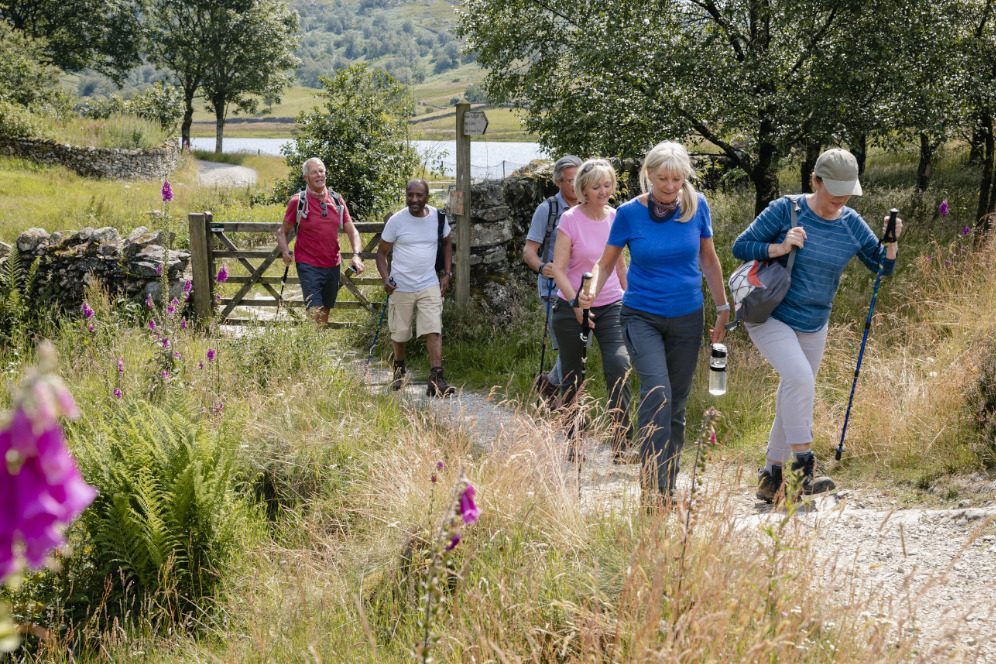Exercise In Addiction Recovery
To live a healthy life, it is essential to focus on fitness and mental health, treating the mind, body, and spirit together. This is especially true when addressing addiction treatment.
People who have seen their health ravaged by drug or alcohol use may wish to redress the balance by beginning a new fitness programme. They may even make getting fit an important part of their addiction treatment.
Seratonin, dopamine and alcohol addiction
When we exercise, our body releases dopamine and serotonin. These are neurotransmitters that control the reward centre of our brain (how we feel happiness and pleasure). Drinking alcohol increases the levels of dopamine and serotonin in our brain, which is why it can feel good short term.
If you drink too much and too often, the body adjusts to these levels, meaning your feeling of happiness can only be achieved through drinking. Even then, the brain builds more tolerance, so you need more alcohol to maintain that feeling. This is one reason that many people with alcohol addiction also suffer from depression and anxiety, both related to serotonin and dopamine.
What kind of fitness programme should I be doing?

Walking
Whether you are hiking in the countryside or just going for a stroll in the park, walking is a low-impact exercise perfect for recovery. Detox can leave you feeling tired and down, which means a slow start is best. Add to this the health and mood-lifting benefits of being outside in nature, and walking is one of our best-recommended exercises.
- Start with a 30-minute walk for a week
- Add 15 mins twice a week
- Don’t rush, enjoy your walk
- Take a supportive sober friend for company
Yoga, Pilates & Meditation
Addiction and mental health issues go together for many in recovery. They may not be a tough workout, but yoga, pilates, and meditation classes such as tai chi can work on feeling better. These are exercises that get more challenging as you go along, providing a sense of accomplishment and satisfaction.
GET HELP TODAY. 24 Hour Helpline: 0207 2052845
Running
Running offers all the benefits of walking, nature, company, and sunshine, but with a cardio workout too. This is best done after the doctor has cleared you for exercise, as it is a higher-impact sport. Running is also a much-loved hobby for many and a good way to meet new, healthy, and sober friends.
- Warm-up for 5-10 mins
- Run as far as you feel comfortable
- Build each day by 5 mins more running
- Don’t feel pressured; if you can’t keep going, walk instead
Indoor Swimming
Another low-impact sport that has a feel-good serotonin and dopamine release is swimming. This is a good way to start exercising if you have physical issues that prevent impact sports. Swimming relieves the strain on your body and can be a relaxing time for contemplation.
Wild Swimming

The UK’s latest craze after the COVID pandemic is swimming outside in the sea, rivers, and lakes. A huge bonus to this exercise is its health and mood benefits. Just being outside can lift your mood, and cool water invokes a response that has helped people deal with conditions from chronic pain to depression.
- Stick to summer months at first
- Take a swimming buddy
- Start slowly with just a dip for 2-3 mins
- Safety first – take a float and only swim where it is calm and safe
General Advice for Fitness in Recovery
When using the gymnasiums at our rehab clinics, you will be closely supervised to ensure safety. If you are doing a medical detox, wait to use the exercise equipment until it is completed. Safety is, of course, the top priority.
At the start, walking is good enough, but your body will become accustomed to walking and will want a more rigorous routine. Yoga, treadmills, tennis, weights, and horse riding are all great ways to exercise and develop new hobbies. Stretching before these activities is important as it increases & maintains a range of motion in the joints, aids the recovery process by increasing circulation & decreasing muscle tension.
How important is it to get out of breath when I’m exercising?
When your body recovers from being out of breath, it is a rejuvenating experience where your physical systems work together – a concert of strengthening, stretching, hydration, nutrition, and confidence. It also helps you develop increased functional movements and the ability to improve daily activities with a decrease in pain or discomfort. The result is a greater ability to enjoy a walk, to complete sport-specific movements with greater ease.
Should I stay on a fitness program after addiction treatment?
Once you have a fitness programme that works for you—one that taxes your system & lets your body enjoy the rejuvenating experience of having all your physical systems work together—you’ll never want to stop. At this point, maintaining good health, posture, and energy will become a life habit.
Exercise as Addiction Treatment

While it cannot be the sole treatment, there are studies revealing that regular exercise is a potential treatment for drug addiction.
Exercise, when combined with other proven forms of addiction treatment, has been shown to produce protective effects in addiction recovery tied to the neurobiological and behavioural consequences of physical activity.
When you arrive at an addiction recovery centre, a therapist will assess the nature of your addiction and your mental health status. A treatment team will then create an individualised treatment plan designed to meet your personal needs.
If you know that you’d like to have an exercise programme built into your addiction recovery program, talk to your therapist about it.
Fitness Programs in Rehab
Each rehab is different. Some will have a fitness programme with on-site gyms or outside courts that you can use at designated times. Others will have a recreational therapist or a personal trainer on staff to provide fitness-related workshops.
Contact our addiction experts they can help you find an addiction treatment centre ideal for your personal needs. This is your chance to break free from harmful substances and learn a new way to live. Contact us now to find out more about our various treatment options.
Connect With Us – 02072052845 or 0141 309 9138
Alcohol Counselling Cognitive Behavioural Therapy
Sources
https://www.bbc.co.uk/news/health-45487187 Can cold water swimming treat depression?
https://www.ncbi.nlm.nih.gov/pmc/articles/PMC6826820/ Alcohol and Dopamine
https://www.ncbi.nlm.nih.gov/pmc/articles/PMC6826824/ Serotonin’s Role in Alcohol’s Effects on the Brain

Fiona Kennedy is an editor and content manager who earned her Master of Arts degree from the University of Edinburgh, followed by completing the CELTA Cambridge teaching course in English. She has worked as an editor, writer and personal coach. Coming from a family deeply involved in the rehabilitation and support of those suffering from addiction, she is passionate about helping people to understand and take control of their dependences. Fiona’s other passions include travelling and taking part in community projects.


